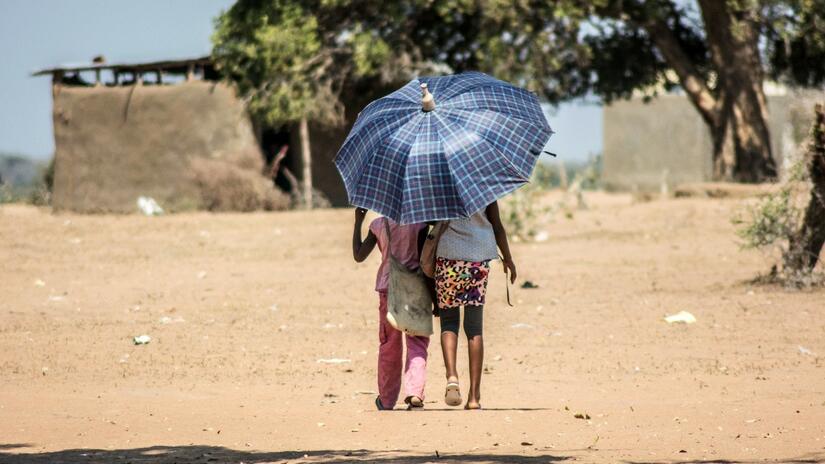Geneva, 10 October – Record high temperatures this year—which are fueling catastrophes in Somalia, Pakistan and around the world—foreshadow a future with deadlier, more frequent and more intense heat-related humanitarian emergencies, a new report warns.
Released a month ahead of the 27th United Nations Climate Change Conference (COP 27), Extreme Heat: Preparing for the heatwaves of the future says that, with climate change making heatwaves ever more dangerous, aggressive steps must be taken now to avert potentially recurrent heat disasters.
“As the climate crisis goes unchecked, extreme weather events, such as heatwaves and floods, are hitting the most vulnerable people the hardest,” says Martin Griffiths, United Nations Under-Secretary-General for Humanitarian Affairs and Emergency Relief Coordinator. “Nowhere is the impact more brutally felt than in countries already reeling from hunger, conflict and poverty.”
The report—the first to be published jointly by the United Nations Office for the Coordination of Humanitarian Affairs and the International Federation of Red Cross and Red Crescent Societies (IFRC)—offers concrete steps that humanitarians and decision makers can take to mitigate extreme heat’s worst effects. 2022 has already seen communities across North Africa, Australia, Europe, South Asia and the Middle East suffocate under record-high temperatures. Most recently the Western United States and China have buckled under severe heat.
The report, notes that, in the coming decades, heatwaves are predicted to meet and exceed human physiological and social limits in regions such as the Sahel, the Horn of Africa and South and South-West Asia. Extreme heatwaves in these regions, where humanitarian needs are already high, would result in large-scale suffering and loss of life, population movements and further entrenched inequality, the report warns.
“The climate crisis is intensifying humanitarian emergencies all around the world. To avert its most devastating impacts, we must invest equally on adaptation and mitigation, particularly in the countries most at risk,” says Jagan Chapagain, Secretary General of the IFRC.
“At COP27, we will urge world leaders to ensure that this investment reaches local communities that are on the frontline of the climate crisis. If communities are prepared to anticipate climate risks and equipped to take action, we will prevent extreme weather events from becoming humanitarian disasters.”
Heatwaves prey on inequality, with the greatest impacts on isolated and marginalized people. The report stresses that the urgent priority must be large and sustained investments that mitigate climate change and support long-term adaptation for the most vulnerable people.
The report also finds that, although the impacts of extreme heat are global, some people are hit harder than others. Vulnerable communities, such as agricultural workers, are being pushed to the front lines while the elderly, children, and pregnant and breastfeeding women are at higher risk of illness and death.
The world’s lowest-income countries are already experiencing disproportionate increases in extreme heat. These countries are the least to blame for climate change, but they will see a significant increase in the number of at-risk people in the coming decades.
Building on a growing body of knowledge and good practice around early warning, anticipatory action and response systems to heatwaves, the report suggests the following five key steps to help the most vulnerable people:
- Provide early information on heatwaves to help people and authorities take timely action.
- Support preparedness and expand anticipatory action, especially by local actors, who are often the first responders in emergencies.
- Find new and more sustainable ways of financing local action.
- Adapt humanitarian response to accelerating extreme heat. Humanitarian organizations are already testing approaches such as more thermally appropriate emergency housing, ‘green roofs’, cooling centres and adjustments to school timetables, but this will require significant investments in research and learning.
- Strengthen engagement across the humanitarian, development and climate spheres.
Addressing the impact of extreme heat in the long-term and helping communities, towns, cities and countries adapt to extreme heat risk will require sustained development planning.
The full report is available here.
Note to editors:
Videos and photos are available at this link and this link for use by the media.
For more information, please contact:
IFRC (Geneva): Jenelle Eli, +1-202-603-6803, [email protected]
OCHA (New York): Jaspreet Kindra, +1-929-273-8109, [email protected]

